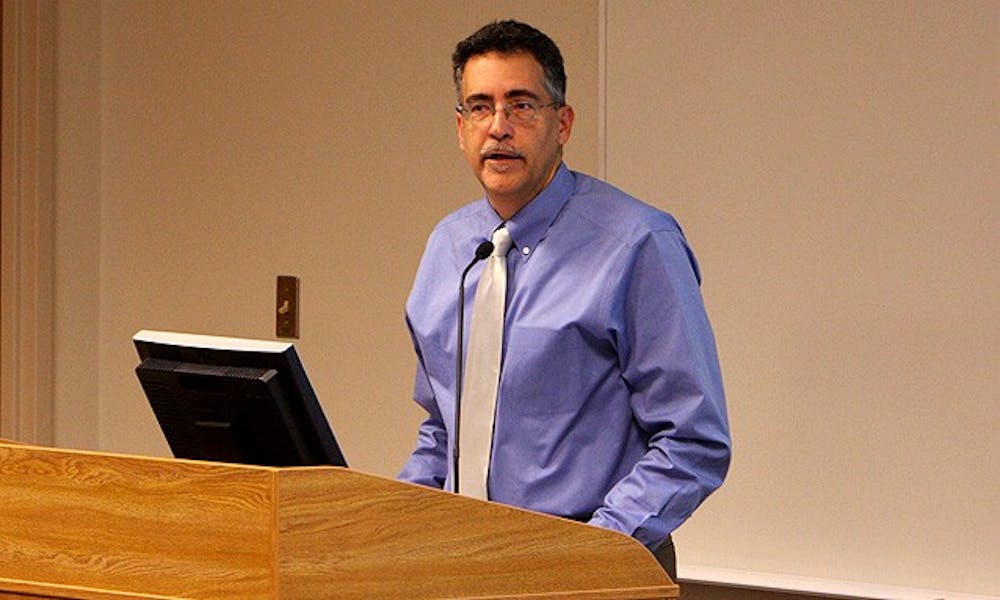In a meeting May 13, the Academic Council approved the updated Acceptable Use Policy and heard a presentation on major financial challenges facing the University.
The revised AUP sets new guidelines for the privacy and security of information on Duke servers. The Information Technology Advisory Council changed the policy to include clauses that address legal, regulatory and compliance issues that have developed since the original version was released in May 1997.
Under the new policy, investigations, lawsuits, subpoenas or threatened litigation may legally require the University to produce electronic records or other related information resources to defend its legal interests.
“The new language [of the policy] indicates that Executive Vice President [Tallman Trask]... or University President [Richard Brodhead] would need to sign off on any order to secure data for some internal investigation that is not currently covered by existing policy,” Academic Council Chair Craig Henriquez, professor of biomedical engineering, wrote in an e-mail this week.
Henriquez said the disclosure of secure data is expected to occur very rarely. Attempts will be made to notify users if their documents are used for investigation, he added.
Although the new policy encompasses e-mails and electronic files, it does not cover other potentially confidential information such as paper files or DVDs that might be held in a Duke office or Duke system.
The policy currently requires all system administrators at the Office of Information Technology and Trinity College of Arts and Sciences who have access to user files and e-mails to sign a confidentiality agreement. The council pushed for an extension of the agreement to all administrators in different schools of the University that have developed since the original policy was put into effect.
The Information Technology Security Office may also encrypt data if it needs to be secured, Henriquez said. Although this matter is not included in the new policy, it may be discussed in a separate document.
“The sense was that since this is a changing legal landscape we do not know if this is possible or always desirable,” he said this week. “Hence OIT will explore it more fully.”
The new AUP will be edited by the executive council of the Academic Council and will be made available for all users once the language is finalized.
In addition, the council was presented with a summary of Duke’s primary financial challenges by Warren Grill, chair of the University Priorities Committee and Addy professor of biomedical engineering.
Grill said he emphasized compensation at the meeting, the strategic initiative funds and debt as the three major areas at Duke that need the most improvement.
Grill added that although this year’s retirement incentives have been successful, serving as “low hanging fruits” to close the financial gap, similar options may not be as effective in the future.
In other business:
The council approved the creation of five new graduate and doctoral degree programs. The degrees include a Masters in Biostatistics, Master of Fine Arts, Master of Christian Studies, Master of Arts in Christian Practice and Doctor of Ministry.
Michael Gillespie, chair of the Athletic Council and Jerry G. and Patricia Crawford Hubbard professor of political science, discussed the performance of varsity athletes in the classroom and noted that progress is being made across all sports departments, Henriquez said this week.
Lynn Smith-Lovin, Robert L. Wilson professor of sociology and chair of the Academic Programs Committee, said she gave a presentation on the committee’s work throughout the year. She reviewed the eight degree programs approved this year and the newly established Department of Orthopaedic Surgery at the School of Medicine.
Get The Chronicle straight to your inbox
Signup for our weekly newsletter. Cancel at any time.

